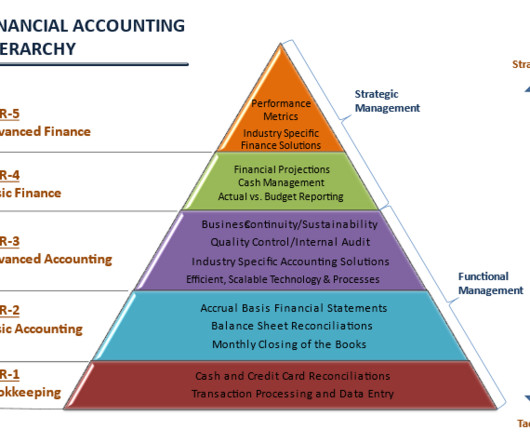From Controller to CFO: What Changes?
CFO Talks
MARCH 20, 2024
It’s about making plans for the company’s financial future and finding ways to make the business better. Example: When it’s time for an audit, the Controller is hands-on, working directly with the auditors, showing them the books, and explaining the details. The post From Controller to CFO: What Changes?












Let's personalize your content